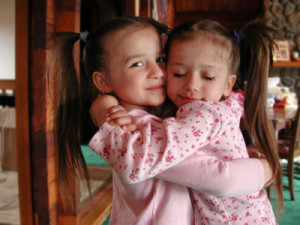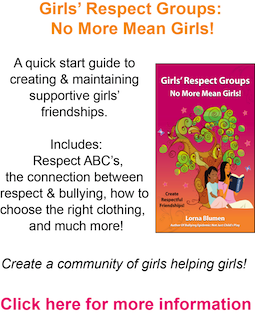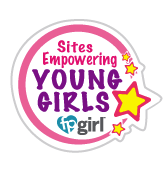 When I was In Grade 2, a boy named David taunted me on my way home from school. He wouldn’t let me go past him without doing what he demanded. I didn’t want to, but because he was bigger than me, I did. I just wanted to get home.
When I was In Grade 2, a boy named David taunted me on my way home from school. He wouldn’t let me go past him without doing what he demanded. I didn’t want to, but because he was bigger than me, I did. I just wanted to get home.
I didn’t know terms like “boundaries” or “self-respect,” but knew it felt wrong to do something I didn’t want to do, so I told my parents about it.
They spoke to David’s parents, who apologized to me on their son’s behalf. I wasn’t convinced. I harbored bitterness for decades, including an irrational suspicion of boys named David.
Years later, that very same David published a powerful article about his childhood. He revealed his father had encouraged him to treat young girls poorly. My childhood anger came flooding back as I read this. I shared my feelings with a friend, who pointed out that David’s article amounted to a public apology for his childhood actions.
Now it was my turn to do the right thing. Could I forgive his behavior from years ago and let go of my grudge?
“Should I, can I, and how do I forgive?” We frequently struggle with these questions, sometimes decades after an event. For some, forgiving may feel like justifying or trivializing the hurt and damage they’ve experienced, and moves them no closer to the direct apology they desire. Often, the person who inflicted the hurt is nowhere to be found, or may not be alive, so traditional closure is impossible. Why forgive someone who won’t know you’ve done so?
Turns out, there are many important health and psychological reasons to offer forgiveness. It’s as much about our future as our past. Forgiveness allows us to break the chains that bind us to bad events. Forgiveness allows us to step forward into our future, filled with light, hope, and peace. The ability to forgive is part of our resilience tool kit.
Here’s what forgiveness is NOT:
- Forgiveness does not justify or condone hurtful actions. Many people carry damage inside them for years, fearing that letting go means the person who hurt them “got away with it.”
- Forgiveness does not mean you should continue the relationship. Some acts of damage or betrayal harm the relationship permanently. Forgiveness does nothing to change that.
Consider the benefits of forgiveness – and the downside of choosing not to forgive.
- Forgiving others is good for your health. Concordia University psychologist Carsten Wrosch is an expert on negative emotions like bitterness and regret. He and other experts have discovered that bitterness (the failure to forgive) is toxic, harming our hormone and immune systems, raising our blood pressure and cortisol levels.
- Bitterness can be downright dangerous. Extreme bitterness can result in what psychiatrist Michael Linden calls PTED. You’ve heard of PTSD – post-traumatic stress disorder. PTED stands for post-traumatic embitterment disorder. Linden believes people who harbor bitter feelings can end up feeling suicidal, and may even contemplate murder or suicide. Talk about two wrongs not making a right!
Adults must start first. How can we let go of bitterness and regret?
- Make peace with the past. The Serenity Prayer outlines two paths to wellbeing: “… grant me the serenity to accept the things I cannot change; the courage to change the things I can; and the wisdom to know the difference.” Both paths require forgiveness. Buddhist teachings say, “Suffering comes from failure to accept what IS.” This doesn’t mean that “what IS” was right or fair, but accepting the reality of what happened in the past helps clear our path to positive action for our future.
- Look outside. Look within. Wrosch believes bitterness is about blaming others for life situations; regret comes from blaming yourself. Letting go of bitterness requires the courage to forgive others and take responsibility for your own life from this day forward. Letting go of regret requires forgiving yourself. While we can understand our past helplessness in the face of harm, especially in childhood, we may still need to forgive ourselves on some level: “I did the best I could at the time.” Forgiving yourself for not being able to protect yourself often removes a huge obstacle to healing.
- Develop the practice of forgiving quickly. Learn how not to carry a grudge, especially for little hurts. Girls and women tend to harbor grudges more than men, but we can change! Grudge releasing is a specific skill that can be learned with practice, like weight training at the gym. First, we must become aware when our internal self-talk is focused on the grudge or past hurt. The next step is to practice letting it go. “That’s not good for me and just keeps me spinning in my own misery. I choose to release the hold this grudge has on me”.
- Grudge–release bootcamp. Sounds easy, but like our first set of push-ups at the gym, our first efforts to release a grudge are usually pretty lame. “It wasn’t my fault,” “If she hadn’t said that, this wouldn’t have happened.” While the initial injury may have been out of our control, the ONLY thing we DO have control over is how we respond, and this choice determines the quality of our life going forward.
After acknowledging the pain, the damage, and the unfairness, stand firm in your determination to not drag this forward in your life. Practice this for 6 months and you’ll be amazed at the difference it will make on your mood, your life and your relationships. Remember, the first step – and about 90% of the problem – is to become conscious when you’re replaying or obsessing on the past.
Interestingly, Wrosch and colleague Jesse Renaud discovered that older adults are quicker to let things go than young people. That shouldn’t stop us from teaching our kids how to forgive. In fact, it’s an extra incentive!
Adults can teach children how to forgive. Jamie Perillo, a child and family psychotherapist, has some good ideas:
1. Encourage your child to say how she feels before she forgives. You’re acknowledging her pain and you’re empowering her to express her pain. For teens, writing these feelings down can be a powerful step towards forgiveness. It’s easier to forgive when you’re empowered.
2. Forgive, but don’t forget. Remembering pain can teach us a lot and protect us going forward. Teach kids that forgiving means acknowledging what happened and moving on, not wiping out their memory or personal history.
3. Encourage your child to understand the person behind the actions. It wasn’t until years after David hurt me that I discovered he was trying to get his father’s approval. It didn’t make his childhood actions right, but it was easier to forgive him once I understood why he acted the way he did.
4. Demonstrate forgiveness – and the ability to apologize! We can’t expect our children to forgive or apologize if we don’t do it ourselves. We all make mistakes, and if we acknowledge that, we can forgive ourselves, and others, sooner! Apologizing freely – and often – over the little things sets an example that makes it easier for adults and kids to take responsibility and apologize when we hurt someone.
As for me, I’ve forgiven the David that taunted me years ago. In fact, one of my best friends, a musician named David, told me I made him feel like his name which, he explained, means “beloved.” I graduated from prejudice against the name to understanding and loving a David.
That’s the power of forgiveness.
Learn More:
L. Blumen, Bullying Epidemic: Not Just Child’s Play. Toronto: Camberley Press, 2011
H. Villarica, “The Psychology of Bitterness: 10 Essential Lessons,” The Atlantic, Aug. 31, 2011
C. Wrosch and J. Renaud, “Self-Regulation of Bitterness Across the Lifespan,” pp 129-141, Embitterment: Societal, Psychological and Clinical Perspectives edited by M Linden, A Maercker
J. Perillo, “How to Teach A Child Forgiveness,” PsychCentral.com, Feb. 27, 2013
“Forgiveness: Letting Go of Grudges and Bitterness,” MayoClinic.com, Nov. 23, 2011


